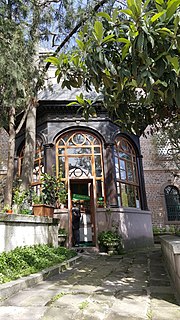 W
WMahmud Pasha Angelović was the Grand Vizier of the Ottoman Empire from 1456 to 1466 and again from 1472 to 1474, who also wrote Persian and Turkish poems under the pseudonym Adni.
 W
WGeorge Berovich, known as Berovich Pasha was a Christian Ottoman statesman who served as Governor-General (wāli) of Crete and Prince of Samos.
 W
WNâzım Hikmet Ran, commonly known as Nâzım Hikmet, was a Turkish poet, playwright, novelist, screenwriter, director and memoirist. He was acclaimed for the "lyrical flow of his statements". Described as a "romantic communist" and "romantic revolutionary", he was repeatedly arrested for his political beliefs and spent much of his adult life in prison or in exile. His poetry has been translated into more than fifty languages.
 W
WHüma Hatun was the fourth wife of Ottoman Sultan Murad II and mother of Mehmed II.
 W
WKučuk-Alija was a janissary, mutesellim of Kragujevac and one of four Dahiyas who controlled the Sanjak of Smederevo in the period between 15 December 1801 and the beginning of the First Serbian Uprising in Spring 1804. He was a brother of Sali Aga, a mutesellim of Rudnik Ottoman nahiyah at the beginning of 19th century.
 W
WSokollu Mehmed Pasha was an Ottoman statesman most notable for being the Grand Vizier of the Ottoman Empire. Born in Ottoman Herzegovina into a Serbian Orthodox Christian family, Mehmed was recruited at an early age as part of the Ottoman devşirme system of recruiting Christian boys to be raised to serve as a janissary. He rose through the ranks of the Ottoman imperial system, eventually holding positions as commander of the imperial guard (1543–1546), High Admiral of the Fleet (1546–1551), Governor-General of Rumelia (1551–1555), Third Vizier (1555–1561), Second Vizier (1561–1565), and as Grand Vizier under three sultans: Suleiman the Magnificent, Selim II, and Murad III. He was assassinated in 1579, ending his near 15-years of service to several Sultans, as sole legal representative in the administration of state affairs.
 W
WZaganos or Zagan Pasha was an Albanian Ottoman military commander, with the titles and ranks of kapudan pasha and the highest military rank, grand vizier, during the reign of Sultan Mehmed II "the Conqueror". Originally a Christian who was conscripted and converted through the devşirme system, he became a Muslim and rose through the ranks of the janissaries. He became one of the prominent military commanders of Mehmed II and a lala – the sultan's advisor, mentor, tutor, councillor, protector, all at once. He removed his rival, the previous Grand Vizier Çandarlı Halil Pasha the Younger, amid the fall of Constantinople. He later served as the governor of Thessaly of Macedonia.